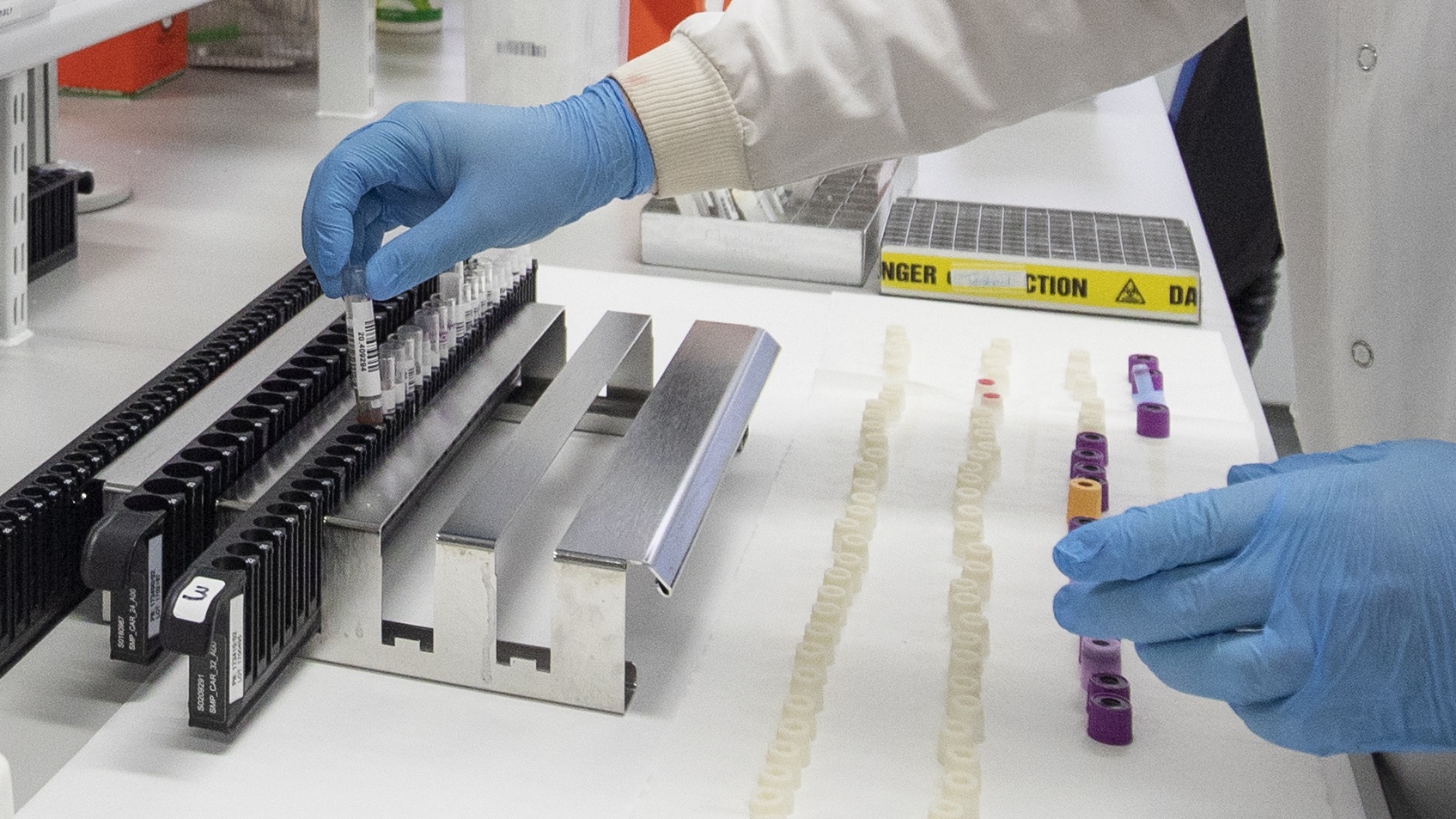Reaction: Covid vaccine hopes raised by Oxford trial results
Scientists from university-led team say their jab may offer ‘double defence’ against coronavirus

A free daily email with the biggest news stories of the day – and the best features from TheWeek.com
You are now subscribed
Your newsletter sign-up was successful
Scientists have taken a leap forward in the race to develop a Covid-19 vaccine as initial trials suggest that an Oxford University-developed jab may provide a “double defence” against the coronavirus.
A senior source on the project told The Telegraph that blood samples taken from volunteers in the first phase of human testing indicate that the vaccine stimulates the body to produce both antibodies and “killer” T-cells.
The trial involved about 1,000 volunteers, who are “are understood to have shown encouraging levels of neutralising antibodies, thought to be important in protecting against viral infection”, says The Times.
The Week
Escape your echo chamber. Get the facts behind the news, plus analysis from multiple perspectives.

Sign up for The Week's Free Newsletters
From our morning news briefing to a weekly Good News Newsletter, get the best of The Week delivered directly to your inbox.
From our morning news briefing to a weekly Good News Newsletter, get the best of The Week delivered directly to your inbox.
“No serious side-effects” were reported, the newspaper adds, although as The Telegraph points out, “further work will be needed” to ensure that “the ChAdOx1 nCoV-19 vaccine is safe”.
“The team is also evaluating the level of dose needed to produce an effective response,” according to The Telegraph.
“I can tell you that we now know the Oxford vaccine covers both bases - it produces both a T-cell and an antibody response,” the inside source told the paper. “It’s the combination of these two that will hopefully keep people safe. So far, so good. It’s an important moment. But we still have a long way to go.”
Another source close to the team confirmed that the presence of both antibodies and T-cells could act as a “double defence” against Covid-19.
A free daily email with the biggest news stories of the day – and the best features from TheWeek.com
Researchers have not yet proved conclusively that the combined immune response is enough to combat infection, but had the vaccine not produced both T-cells and antibodies, “it would have been a setback” to the Oxford project, The Times says. A source told the paper that “the Oxford team are very much still in the fight”.
The full findings of the phase one Oxford trial will be published in The Lancet on Monday.
Appearing on ITV’s Peston last night, Health Secretary Matt Hancock said that in the best-case scenario, the vaccine would be available later this year. But the jab is “more likely” be ready in 2021, he added.
However, hopes that the jab may be ready sooner have been raised by David Carpenter, chair of the Berkshire Research Ethics Committee, which approved the Oxford trial.
Carpenter told The Telegraph that the vaccine team were “absolutely on track”, adding: “Things might go wrong but the reality is that by working with a big pharma company, that vaccine could be fairly widely available around September and that is the sort of target they are working on.”
The vaccine development is being supported by the UK government and pharmaceutical giant AstraZeneca, which has reached agreements to supply up to two billion doses worldwide.
AstraZeneca shares jumped by 5.5% yesterday after ITV political editor Robert Peston revealed that there would be “positive news soon” about the outcome of the initial trials.
Joe Evans is the world news editor at TheWeek.co.uk. He joined the team in 2019 and held roles including deputy news editor and acting news editor before moving into his current position in early 2021. He is a regular panellist on The Week Unwrapped podcast, discussing politics and foreign affairs.
Before joining The Week, he worked as a freelance journalist covering the UK and Ireland for German newspapers and magazines. A series of features on Brexit and the Irish border got him nominated for the Hostwriter Prize in 2019. Prior to settling down in London, he lived and worked in Cambodia, where he ran communications for a non-governmental organisation and worked as a journalist covering Southeast Asia. He has a master’s degree in journalism from City, University of London, and before that studied English Literature at the University of Manchester.